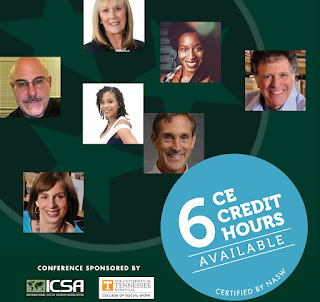An ONLINE EVENT for Families, Former Members and Friends Affected by CULTIC Groups and Relationships.
- PACIFIC RIM | EUROPE - SEPTEMBER 12-13, 2020
- NORTH AMERICA - SEPTEMBER 11-12, 2020
- Event Information/Register
Lorna Goldberg, LCSW, PsyA
Cult Recovery: Gaining Trust After Cult Exploitation
Abstract
After cult involvement, former members may wonder if they can trust others not to betray or shame them. They may wonder if they can trust themselves. For first generation former cult members, cult trauma was an “assault of the unimaginable” (Ringstrom) upon their character, interests, and goals. Many have experienced shaming and deception. For recruits, these assaults may have led to their acceptance of an altered view of their ability to perceive truth. Former members who were born and raised in cults may have accepted their cult’s characterization of them as “bad” or “evil.” Helping ex-cult members gain trust in others includes reminding them of their right to be treated with dignity, which is the opposite of cult shaming. By contrasting dignity with shame, former cult members can both objectify their shaming experience and create a language for understanding that they did not merit the treatment they received. This understanding can serve as a bridge to and a model for future relationships.
Biography
Lorna Goldberg, LCSW, PsyA, Board member and past president of ICSA, is a clinical social worker/psychoanalyst and Director, Institute for Psychoanalytic Studies. In 1976, Lorna and Bill Goldberg began a support group in Englewood, New Jersey, which continues online at this time. Some of her recent articles include Goldberg, L. (2012). “Influence of a Charismatic Antisocial Cult Leader: Psychotherapy with an Ex-Cultist Prosecuted for Criminal Behavior,” International Journal of Cultic Studies, Vol.2, 15-24. Goldberg, L. (2011). “Diana, Leaving the Cult: Play Therapy in Childhood and Talk Therapy in Adolescence,” International Journal of Cultic Studies, Vol.2, 33-44. Lorna has co-written with Bill Goldberg, “Psychotherapy with Targeted Parents,” in Working with Alienated Children and Families (2012). She co-edited ICSA's Cult Recovery: A Clinician’s Guide to Working with Former Members and Their Families. (2017). She has written “Therapy with Former Members of Destructive Cults” in New Religious Movements and Counselling (2018). Website: blgoldberg.com Email: lorna@blgoldberg.com
- PACIFIC RIM | EUROPE - SEPTEMBER 12-13, 2020
- NORTH AMERICA - SEPTEMBER 11-12, 2020
- Event Information/Register


